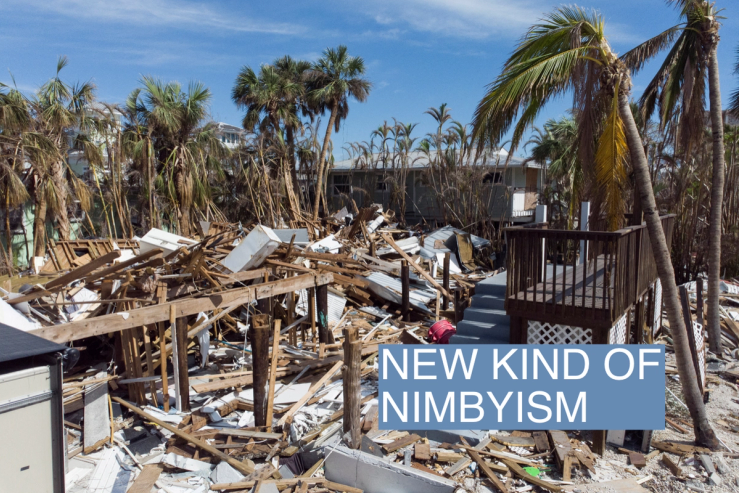Parag Khanna is founder and CEO of Climate Alpha, which uses artificial intelligence to provide risk-adjusted property valuations — and anticipates that the next real estate boom will come from climate-resilient regions.
Khanna argues that the singular focus on reducing emissions is misguided, and that places better defended against climate change can be enjoyed by people outside the 1%. He also flags the climate solution no one wants to discuss.
Q: What’s wrong with how we use climate data?
A: Climate risk analytics are downside risk quantification tools. Their job is to tell you that you are in Miami, and Miami is going to sink by 2050, and therefore, you should sell Miami today. That’s not only likely wrong, it’s also just not useful on Monday morning for any investor or asset manager. These tools are really about mitigation. And mitigation is all about reducing emissions and if we don’t use our appliances after 10 pm, then climate is going to sort of solve itself.
And obviously, it’s not, whereas adaptation is the neglected stepchild. Adaptation is about either hardening assets or relocating right now. But it’s all about meeting the Paris agreement targets and not about saving people now by helping them move to places where they can survive.
Q: So what are the most surprising data points you’ve discovered?
A: The future is a moving target. I thought that there was going to be a set of specific places and I would put my finger on the map and say, people will move from x to y. But we’re going to become more nomadic and we’ll always be moving for multiple reasons, and climate has been pretty much the last reason why people move. You move for economic well being. Of course you move to Florida because it’s sunny and lovely. But that coexists with the fact that they have no state income tax.
And they all coexist with each other in very complex ways and there are so many things in play. We have a customer who was rejected from getting a permit to build a development in southern California because they could not demonstrate that they were going to be able to supply water over a meaningful time frame to all the residents of that development.
Q: How do people outside the 1% afford to live in nice places that won’t be destroyed by hurricanes?
A: Vermont is regularly ranked as the most resilient state given weather models, but it also has some of the most entrenched opposition to new housing. And Americans are still moving in the wrong direction. People are still moving into fire hazard areas, as well as the coastal areas.
But America is a very big country. It’s always about Miami, but there are 40,000 zip codes in America. Our purpose is not to enable climate gentrification by having rich people buy up these assets. There are a lot of places where people can go if the right policies are in place.
Ten years out, there’s going to be about 100 million people in America of retirement age. How many of them [will] live in a place that is climate resilient and offer an active lifestyle for the elderly? Maybe 1 million.
So this is a gigantic opportunity to do something good for the people, which is to plan ahead, think about resilient geographies, and build affordable, resilient housing. You can start advocating for permit issuance, combating nimbyism, and all the things that are going to be necessary so people don’t have to live in the middle of a hurricane zone.

Q: What about outside the United States?
A: The climate part is the easiest, we have climate models for the whole world. But we don’t have good, transparent economic data about the whole world. Look at China. There’s a lot we don’t know. I’m based in Singapore and we’ve gotten queries from Thailand, from all over this region. And there are a couple of caveats around the utility of risk-adjusted valuation forecasting for land and property. One is that there are places where politics trumps everything.
The second is the availability of every other data point, except for climate data. We got a call from a town in Thailand. And this guy was giddily telling me that they’re 100 miles northeast of Bangkok. And Bangkok is totally sunk. And he has 100 hectares so are they the next Bangkok? We asked our standard repertoire of questions. What data do you have on the history of property transactions? And he had nothing.
Q: What is being missed?
A: The one thing that we could do most immediately to save and help the largest number of people is the one thing that will never ever come up at the United Nations COP summit, which is planning on migration. No country will ever allow another country to dictate who gets to cross its borders.
